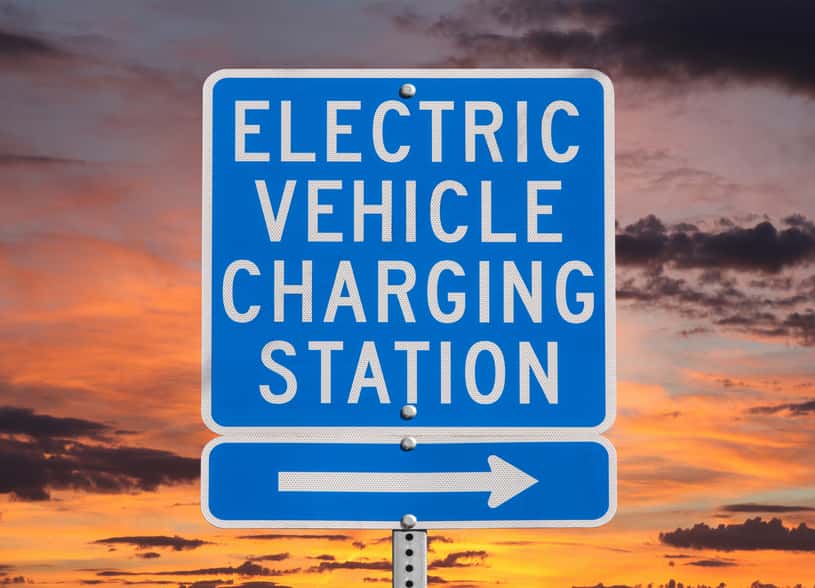Toronto-based eCAMION, Dallas-based Leclanché North America and Geneva-based SGEM have partnered together to develop and install a network of 34 fast-charging electric vehicle (EV) stations along the Trans-Canada Highway (TCH).
The project, designed to encourage the adoption of EVs in Canada, entails an investment of C$17.3 million and is being partially funded by an C$8.0 million repayable contribution from Natural Resources Canada (NRCan) under the Canadian Energy Innovation Program.
This public-private initiative will be supported by an investment from eCAMION, Leclanché and SGEM.
“Canada recognizes the key role electric vehicles will play in reducing emissions from the transportation sector,” says Jim Carr, Canada’s Minister of Natural Resources. “With more electric vehicles becoming available, we want to make them an easy choice for Canadians. This strategic investment brings us closer to having a national coast-to-coast network of electric vehicle charging stations while growing our economy and creating good jobs for Canada’s middle class.”
According to the companies, eCAMION and Leclanché formed a Toronto-based joint venture, named FAST Charge Inc., to manage the TCH project and further expand the implementation of EV charging systems across North America. Bryan Urban, executive vice president of Leclanché North America, will serve as president, and Himanshu Sudan, chief financial officer of eCAMION, will serve as CEO of the joint venture.
As reported, the new system being developed by FAST Charge consists of an energy storage system, using large-format lithium-ion batteries, along with multiple-outlet charging units that can charge several EVs at once. This architecture helps overcome the slow charge issue by acting as a buffer between the grid and the vehicle and allowing EVs to be charged rapidly from the advanced lithium-ion batteries instead of directly but more slowly from the grid.
The companies say this will enable faster charging at Level 3 and higher, allowing EV drivers to charge their vehicles in just 20 minutes.
“Our system will recharge the battery storage units during off-peak times at considerable cost-savings and reduction in stress to the grid,” says Urban. “Vehicles will be able to power up during peak hours using off-peak energy and continue on their journey in a relatively similar amount of time it would take to fuel a fossil fuel vehicle, grab a snack and visit a bathroom.”
At the core of each station will be FAST Charge’s new energy storage system, featuring advanced lithium-ion batteries with scalable capacity that will draw and store energy from the grid for use by charging units whenever required. Each station will have three charging units to allow three vehicles to be charged simultaneously.
FAST Charge has already started work on the demonstration units, with significant funding to be provided by NRCan and a target completion date of December 2017. Manufacturing is scheduled to get under way in the first quarter of 2018, with installation of EV charging stations to be completed through the remainder of 2018.
According to the companies, the FAST Charge stations will be installed at 34 locations along the TCH roadway connecting Ontario and Manitoba – a total distance of approximately 3,000 kilometers, with the stations spaced approximately 100 kilometers apart.
“This is perhaps the largest infrastructure project for electrical vehicles to be deployed at one time anywhere in the world,” says Elad Barak, vice president of business development of eCAMION. “We are pleased to collaborate with Natural Resources Canada, Leclanché and SGEM to deliver a public infrastructure improvement of this importance in terms of product innovation, environmental benefits and bold policy initiative.”
Greater adoption of EVs for inter-urban travel will reduce the use of carbon-intensive fuels for transportation, which currently generates nearly a quarter of Canada’s greenhouse-gas emissions. The installation of 102 charging units at 34 different locations by FAST Charge will reduce emissions by an estimated 0.7 million tons over the first five years of operation.
In addition, each charging station can be connected to a renewable energy source, such as solar or wind, to facilitate 100% emission-free driving. To further demonstrate this, the installation at Highway 11 and Philip Creek Road in Ontario will be connected to a solar photovoltaic system, along with the grid, to demonstrate the full utilization of a clean energy solution.
The project is scheduled for completion by the first quarter of 2019.





